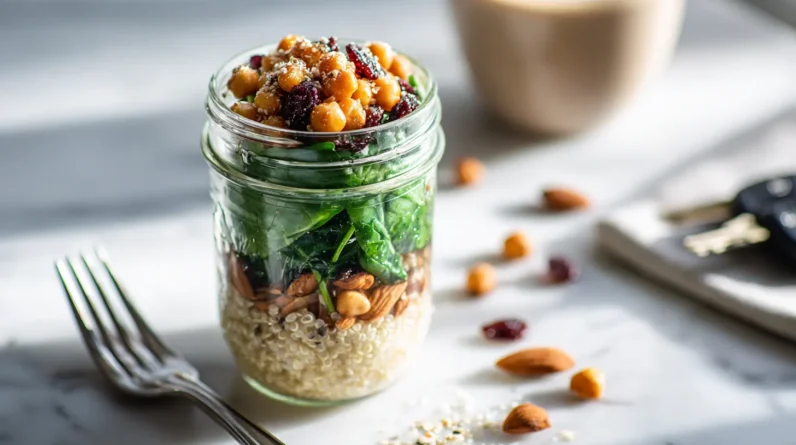
We can boost our energy levels as parents by making informed nutritional choices that provide our bodies with the necessary fuel to tackle the demands of parenting. Incorporating whole grains, leafy greens, and berries into our diet can help sustain our energy levels throughout the day. We also need protein-rich foods like lean meats, fish, and legumes to provide long-lasting fuel. By focusing on these nutrient-dense foods, we can optimize our energy levels – and that’s just the beginning of a more energized, healthier us.
Understanding the Role of Nutrition in Energy Levels
As we explore the complex relationship between nutrition and energy, it’s vital to understand that the food we eat plays a critical role in fueling our bodies. Carbohydrates, proteins, and fats are the three macronutrients that provide the calories needed for our bodily functions. Carbohydrates are broken down into glucose, which is the preferred energy source for our brain and central nervous system. Proteins provide amino acids that are essential for building and repairing tissues, and they can also be used for energy during intense activity. Dietary fats offer a dense source of energy and support cell structure and function. By consuming a balanced diet with these macronutrients, we can optimize our energy levels and maintain overall health.
Incorporating Whole Grains for Sustained Energy
Whole grains, with their rich nutritional profile, offer a sustainable source of energy that can keep us going throughout the day. By incorporating whole grains into our diet, we can benefit from their metabolic-enhancing effects, such as increased resting metabolic rate and higher energy expenditure compared to refined grains. The fiber in whole grains also influences satiety, reducing overall food intake and assisting in body weight management. Additionally, whole grains have been shown to lower postprandial glycemic and insulin responses, preventing energy crashes and sustaining energy availability throughout the day. To reap these benefits, we can start by substituting whole grains for refined grains in our meals and snacks, choosing options like brown rice, quinoa, whole wheat bread, and whole grain pasta.
Leveraging the Power of Leafy Greens for Vitality
While we often focus on the energy-boosting potential of grains and other carbohydrates, incorporating leafy greens into our diet can have a profound impact on our essentialness. Leafy greens are rich in vitamins A, C, and K, as well as minerals like potassium and iron, making them a nutrient-dense food option. They also contain antioxidants like lutein and beta-carotene, which help reduce oxidative stress. We can leverage the power of leafy greens for crucialness by incorporating them into our meals through salads, smoothies, stir-fries, soups, and sautéed sides. By doing so, we can support heart health, cancer prevention, brain function, weight management, and immune system function. With their high folate, iron, and fiber content, leafy greens can help sustain our energy levels and support overall well-being.
Harnessing the Benefits of Berries for Balanced Energy
By incorporating berries into our diet, we can release their vast potential to support balanced energy levels. Berries are packed with antioxidants that combat cellular fatigue and reduce inflammation, promoting sustained vitality. Their fiber content guarantees a steady release of energy, preventing spikes and crashes. Natural sugars in berries provide an immediate energy boost, while their hydration and nutrient density maintain energy levels throughout the day. Let’s harness the power of berries for maximum energy support, as consuming them is crucial for our overall well-being and berries play a key role in keeping us energetic.
Opting for Protein-Rich Foods for Long-Lasting Fuel
Our energy needs can be effectively met by making informed choices about the food we eat, particularly when it comes to incorporating protein-rich options into our diet. Protein not only increases diet-induced thermogenesis but also preserves lean body mass, which is vital for maintaining our resting energy expenditure. By opting for lean meats, fish, dairy products, and plant-based proteins like legumes and nuts, we can enhance satiety, manage hunger hormones, and support weight management. These foods help stabilize appetite, reduce overall calorie intake, and provide sustained energy throughout the day. Planning meals with a focus on protein can lead to better energy levels and contribute to a balanced diet.
Conclusion
We’re not asking for much, just a few tweaks to our diet to transform from sluggish to supercharged. Ditch the energy drinks and instead, grab some whole grains, leafy greens, and berries – the ultimate energy-boosting trio. Add in some protein-rich foods and we’re cooking with gas. Follow these simple tips and we’ll be bouncing off the walls (not literally, let’s save our energy for parenting) in no time.







